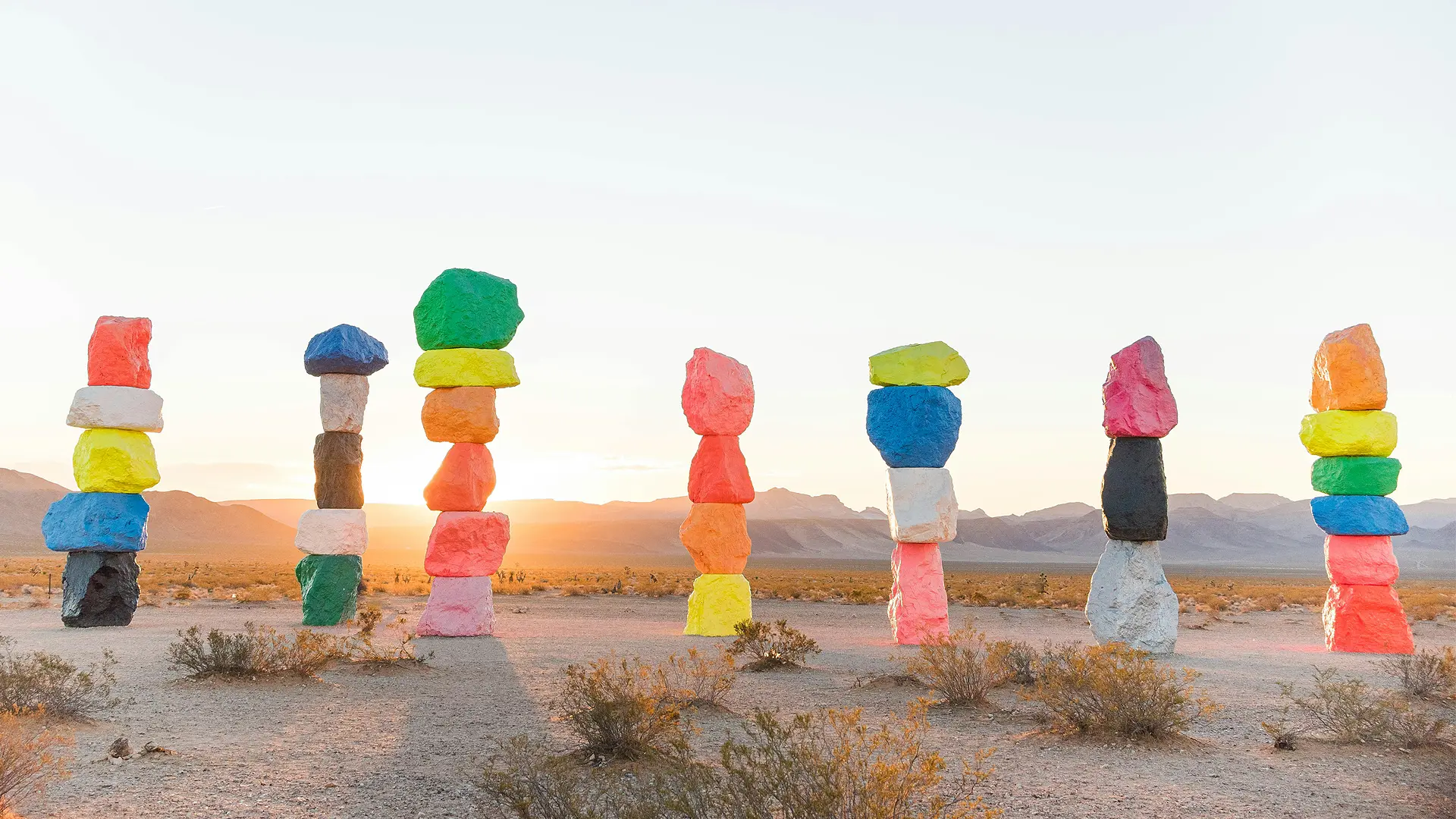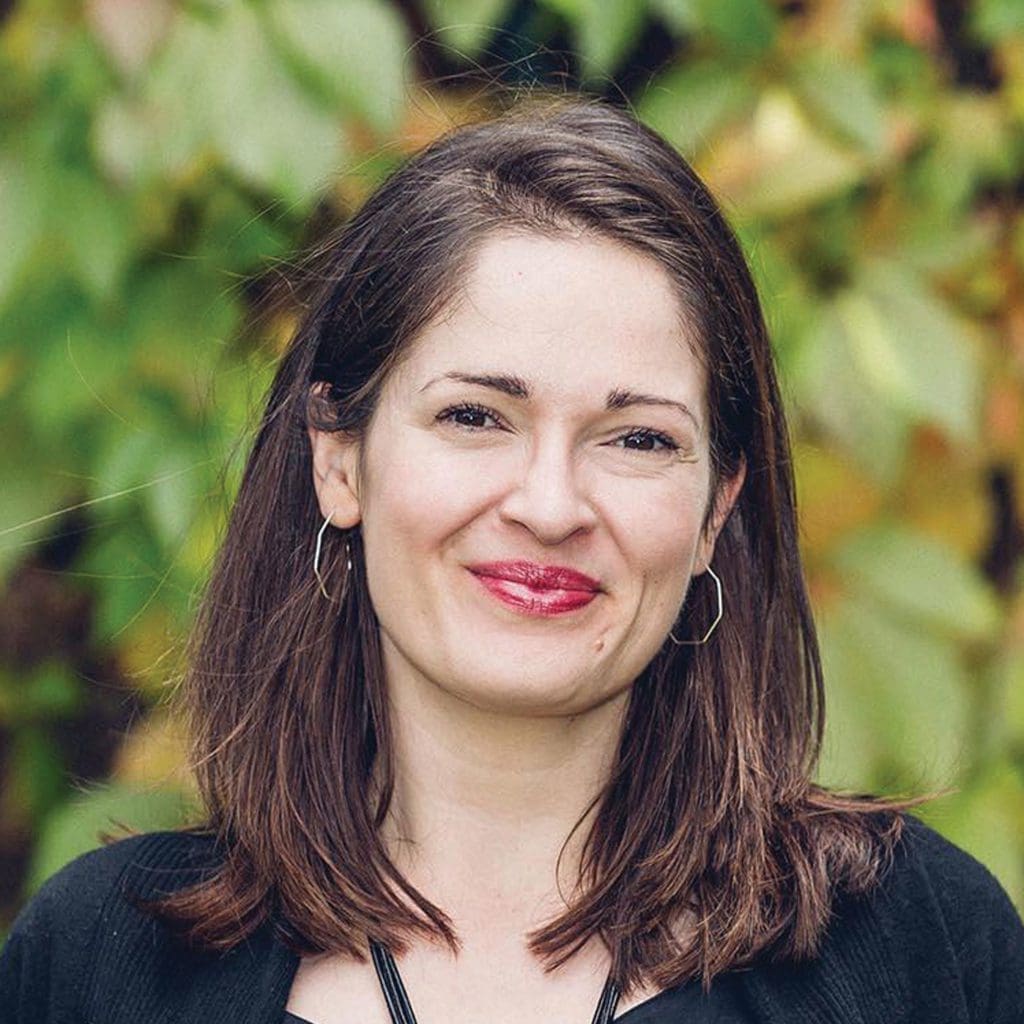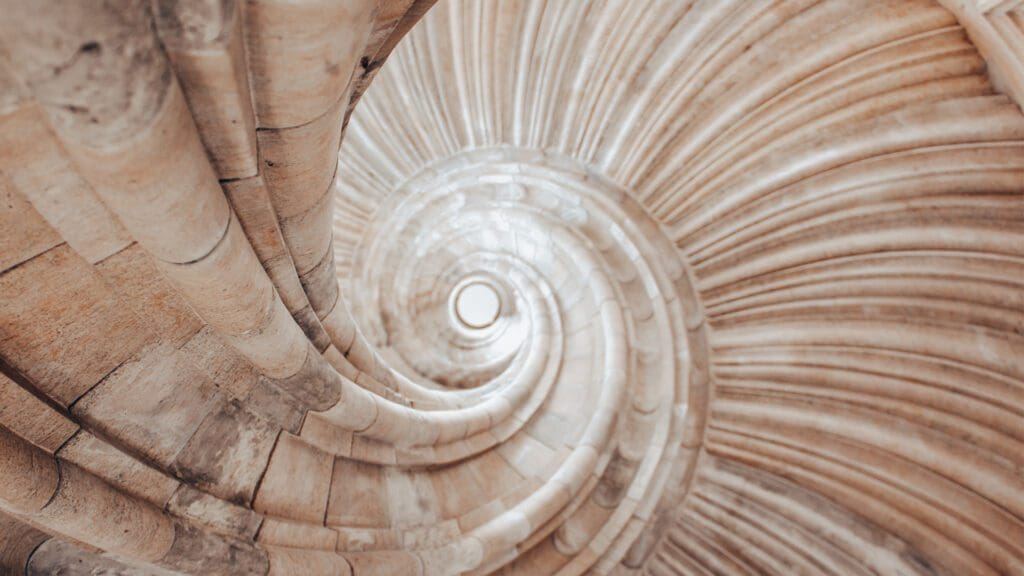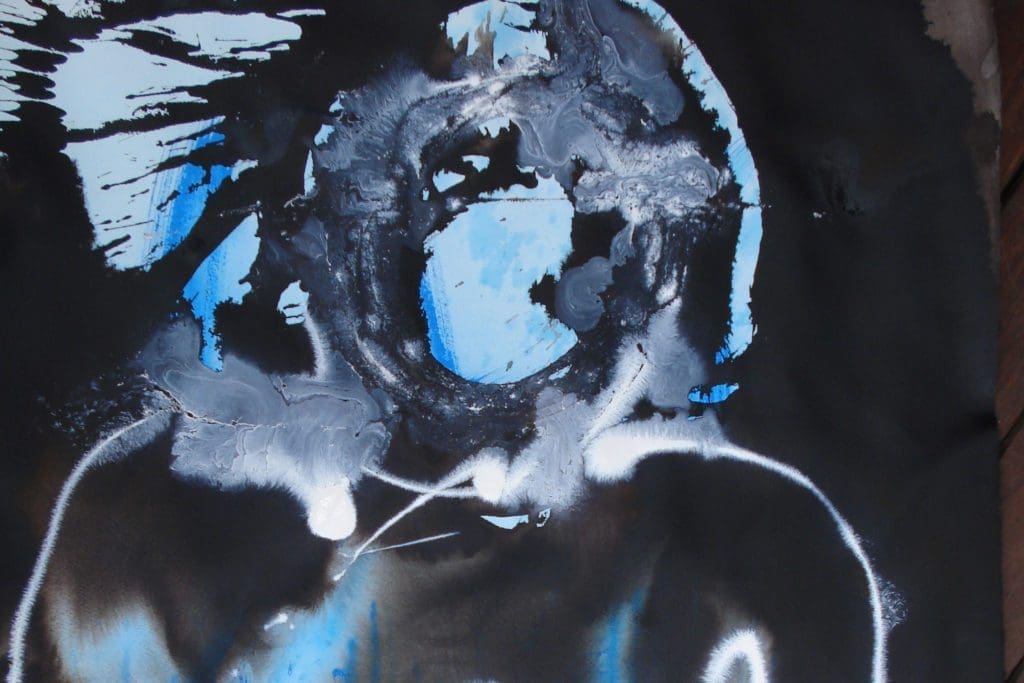A
A few years ago, I was driving along a highway with my husband and kids. It was hot and the air was stale, my passenger-seat footwell strewn with tepid water bottles and KeepCups and empty Pom-Bear packets. We’d long outgrown our tiny bashed-up city car but couldn’t stretch to a bigger one, and so packing involved a complex Jenga game of maximizing space without crushing a child with a suitcase. My daughter was in the back singing along to “When I Grow Up,” a song from the musical Matilda. In her reedy, unselfconscious voice she belted out Tim Minchin’s deceptively simple lyrics, which predict a future in which the children singing will be grown up enough to know how to answer hard questions, strong enough to carry heavy things, and brave enough to fight the monsters underneath the bed.
The chorus, beloved by kids everywhere, is all about eating sweets and staying up late to watch endless TV, but it was the verses and their childlike melody that landed that day like a punch in the heart. The irreconcilably bittersweet nature of adulthood was suddenly too much. I am purportedly a grown-up, but I don’t know the answers. I feel bone-weary from carrying around heavy things. I hate that the monsters exist, and that they often win, and that some of them live in me.
I broke down and started sobbing, my heaves so abrupt that my husband pulled the car over in concern. I didn’t want my daughter to have to grow up into this world. I wanted her to find, as the song promises, that being a grown-up really is about doing what you want in a cartoon world of freedom, not this discombobulating cocktail of beauty and heartbreak, despair and delight, the longing for justice and our own utter and bewildering failure to enact it. I don’t think this conviction that the world should be different, that we should be different, is unique to those who procreate. Honestly, I think the grief is also for myself, for the child I used to be, the innocence I have lost. I would like to put the apple back on the tree, please, because the knowledge of good and evil is just too bloody painful.
I don’t think I am the only one who feels this. We joke about “adulting,” the drudgery of paying bills and sorting out a pension, but it can’t be just me who hears the seriousness thrum underneath. What kind of person am I becoming with all this living? What part am I playing in the tragicomedy we all find ourselves in?
Today’s plural, secular societies in the West have gifted us many things, but reliable sources of communal meaning aren’t one of them.
Growing up must, surely, be about more than ticking (or failing to tick) achievements off an arbitrary list. It must be about something deeper, yet the stories that used to orient and guide us, handed down through generations of our ancestors, seem to have got lost in transit.
Today’s plural, secular societies in the West have gifted us many things, but reliable sources of communal meaning aren’t one of them. So many people I speak to crave places to belong and ways to settle their soul. Technology has freed us from drudgery and offers endless ways to increase our comfort and convenience. Product after product promises to boost our status and performance. Optimize and maximize. Up and to the right. In lots of ways, we’ve never had it better. But still there is a malaise, a sense of impending threat, that many of us feel in our least-defended moments and don’t know how to speak about. The news scrolls unendingly with stories of war, disease, deepening division, the rise of authoritarian governments, and the unimaginable but rapidly approaching prospect of climate collapse. Accelerating advances in AI may turn the world upside down in ways no one can predict. Against this ominous global mood music, we have unlimited choices in framing our identity, but this freedom can sometimes induce vertigo rather than exhilaration. Many of us feel isolated and anxious, or too distracted and overworked to feel much at all.
The Kind of Person Needed at the End of the World
In the 1930s a man called Thomas Merton was part of a group of “irreverent and hard-drinking . . . proto-beatniks” who were similarly dismayed at the state of the world. University-educated as they were, the prospects that mainstream society offered looked less and less appealing: “The world is crazy, war threatens, one has lost a sense of identity. . . . People are dropping out. . . . The rest of us are just lost,” Merton wrote. The cry of Merton and his friends echoes now: “I am not physically tired, just filled with a deep, vague, undefined sense of spiritual distress.”
Nearly one hundred years later, the world is crazy again. War doesn’t just threaten. It is hard to tell how worried we should be, how much a warped information environment plus our negativity bias has led to this ambient sense that we are living in the end times. Every generation thinks the world is ending, but whether the apocalypse is coming or not, I want to be the kind of person that is needed at the end of the world. This phrase was first spoken to me by author, podcaster, and atheist chaplain Vanessa Zoltan when I asked how she handles her climate anxiety. It landed like balm, restoring to me a sense of agency, and driving me deeper into the tradition I was purportedly already part of. Zoltan’s words helped me see clearly how Christianity had never promised me a safe, prosperous, uneventful life, and how Christians had actually done some thinking about the end of the world, about becoming the kind of people the world needs.
I discovered, in my desperate search for spiritual core strength, that I already had in my hands much of what my soul craved. That the stories and rituals and ideas and postures of Christianity, not to mention the felt presence of an unpanicked Love, had held communities of believers through many “ends of the world” already. I just needed to take it seriously. I needed to take the medicine.
If the stories of decline and crisis are accurate, there may not be much we can do to change course. I still want to make responsible choices, protest injustice, and resist what needs resisting, but my focus has shifted to my own soul. As the Serenity Prayer says, God, grant me the serenity to accept the things I cannot change, the courage to change the things I can, and the wisdom to know the difference. As our world turns upside down, I want to be of use, not anxious and hoarding (which is not a great basis for loving our neighbour) but steady and hopeful. I want to contribute to weaving a canopy of trust under which other people can shelter. Instability can make us (me) close ranks and cease to care for those beyond our immediate family and friends. I want to resist that impulse. I aspire to become the kind of person who would have hidden runaway slaves or people escaping the Nazis. Not least because I want to live in a society in which someone might hide me, my friends, my kids. I know I am not that kind of person yet. I do not have that kind of moral courage. I am probably not going to grow that kind of character accidentally. And if it turns out it is not the end of the world, well, we always need those people. If nothing else, the attempt to become one feels more interesting and meaningful than just polishing my CV and going to Pilates.
I want to be the kind of person that is needed at the end of the world.
Part of me is still surprised at the source of this strongest wisdom. I was raised with the dilute cultural Christianity still in the air in eighties Britain. It was a boring background noise to the nation, like Radio 4 turned down low. I became a Christian via an intense ecstatic experience at a youth festival I’d been taken to by a friend, then lost my faith in my twenties over the spikey, complex wildness of the Bible. I’ve worked at the BBC and in Westminster, am a feminist with a New Yorker subscription, have lived mainly alongside people for whom the whole idea that religion has anything to teach us is laughable. I’ve looked elsewhere for the stability my soul craves, tried to talk myself out of it. But I haven’t been able to shake Christianity off. As I approach middle age, I am in what philosopher Paul Ricoeur calls my second naïveté, discovering this tradition to be richer and deeper and more capacious than the first time around. All the messages our culture gives us about Christianity led me to expect primary colour stories for children, oily Easter egg chocolate, not this Old Master narrative world, this complex red wine. Yes, I deconstructed my home, but I’m now very happy living in the renovation. I’m a contentedly failed atheist who retains a soft spot for those who would still call themselves that. And now, as the future seems to disappear and the storm clouds gather, I have never been more grateful for it.
Surprised by Sin
I’m increasingly convinced the Christian tradition has deep and applicable insights, rituals, and practices that are helpful even for those who would never go to church. Yet the long, withdrawing roar of secularization has left the vast resources within this tradition more and more inaccessible. This worries me. We are living in a time of endings and need all the help we can get. While newer disciplines bring much insight and comfort, religions have a many-centuries head start in mapping the mysterious terrain of human depth. These stories were written in, and have been told through, more turbulent times than ours. They have provided forms of collective resistance, existential steadying and meaning-making material for billions. And there is power in them yet.
Unexpectedly, the concept of sin has been perhaps the most helpful. It gives me a frame to understand how on earth we have got ourselves into this mess, and a rigorous lens on my own complicity in it all. I have come to understand sin less as the legal concept it is often received as and more as relational, at its heart about disconnection.
Francis Spufford, professor of creative writing at Goldsmiths, calls this tendency the Human Propensity to Fuck Things Up, or HPtFTU. It is his attempt to rebrand a word that has fallen far, far out of fashion. “Sin” is now used jokingly, if at all. A slimming club’s shorthand for calories. The name of a lingerie shop. It sounds like self-indulgent naughtiness, harming no one, the liberated opposite of Puritanism.
There are good reasons many people shrugged off the concept. Alongside the sillier usages (Magnum ice cream had a 7 Deadly Sins range, the Vanity flavour including crunchy silver cake-decorating balls embedded in champagne-flavoured coating), we can trace a darker side. Church teaching on sexual sin has too often created shame around entirely normal human urges, and in some periods and denominations it riddled people with terror of hellfire for the smallest misdemeanour.
Despite all this, I have found I need the concept. I am seeking a deep life of connection, to become the kind of person the world needs, and disconnection keeps getting in the way. This language gives me a way of talking about all the fractures, large and small, the twig-snapping crackle-glaze of human interactions. Sin, theologically understood, has nothing to do with enjoying sensual pleasure. It is about the threads between us and others, us and the natural world, and, yes, us and God. Sin, barely recognizable now in the cultural cipher it’s become, is tragedy. Kant called it the crooked timber of humanity, the tendency to break things, accidentally and deliberately, that just seems baked in. I like Spufford’s use of “Fuck” because its fricative-plosive helps us hear the brutality. The HPtFTU is all the times we choose withdrawal, self-protection, or attack—when we centre ourselves, not as part of a healthy rhythm of receiving and giving in a web of relationships, but because we’re terrified no one but ourselves is going to meet our needs. I see my sin (which, I should say now, needs meeting with grace, not judgment) as a bundle of my self-destructive tendencies. The HPtFTU shows up in lashing out, hiding, craving, and numbing behaviours that close down the possibilities of intimacy, with myself, others, and the beyond.
I even have found the seven deadly sins to be a helpful framework. Few ideas first conceived by desert monks and kept alive in a dusty branch of academia called patristics feature in so many LinkedIn posts. The seven deadly sins of bulk email fundraising! The seven deadly sins of year-end accruals!
All the messages our culture gives us about Christianity led me to expect primary colour stories for children, oily Easter egg chocolate, not this Old Master narrative world, this complex red wine.
Before they were a clickbait trope, they were a list of eight “bad thoughts” or “temptations” written by Evagrius of Pontus in the fourth century. His list was gluttony, lust, avarice, sadness, anger, acedia, vainglory, and pride. The desert monks were pursuing an extreme ascetic lifestyle, with long periods of solitude and fasting, and Evagrius observed that these eight tendencies pulled focus from prayer and contemplation. It seems that even when stripped of normal social structures, humans struggle with the same things. Vows of poverty do not fully prevent an acquisitive impulse, nor chastity lustful ones. Evagrius’s list cropped up in various iterations over the following centuries, with pride and vainglory being combined, sadness (harsh!) dropping out, and envy being added. They eventually settled into the seven we might recognize today, though lists differ.
The medieval heyday of the sins has long passed. They are rarely taught now in churches; most Christians know them more from the Magnum range than the pulpit. I’m on a mission to unearth them, not as a comedy concept but as a genuinely helpful framework for self-reflection. I’ve found them an astute taxonomy of disconnection.
They are helpful partly because our moral language is so shrivelled. Where we used to have a complex palate of vices and virtues, contemporary moral tastebuds are trained on thin gruel: harm reduction. Beyond that, there are now few places to talk about how we might rise to the challenge of this moment and about all the tendencies that make that difficult. New York Times columnist David Brooks writes about the difference between résumé and eulogy virtues: “The résumé virtues are the skills you bring to the marketplace. The eulogy virtues are the ones that are talked about at your funeral—whether you were kind, brave, honest or faithful. Were you capable of deep love?”
He argues that, even though we all know that the eulogy virtues are most important, it is the résumé virtues—the skills we need to earn more money—that we spend vastly more time and attention on. The non-fiction shelves in my local bookshop have titles focused on how to reduce the harm we cause (how to be anti-racist, for example) but none on how to be someone who keeps their promises, loves their enemies, even lays down their life for their friends. My guess is there are more books telling you why growth involves the opposite of these things, because they are seen as “emotional labour.” The tiny section focused on character is dwarfed by the shelves of books telling me how to make more money and project success.
I want to get beyond the “résumé virtues,” and even beyond “harm reduction,” great baseline that it is. I want, for the sake of the world, my kids, myself, to be better. Our moral vocabulary is so allergic to anything that sounds judgmental that it’s hard to know where to start. I don’t think I can overcome my darker self just by upbeat positive thinking. I don’t believe that denying my HPtFTU helps, but injecting something a bit more robust into my life really has. And so my personal project of soul work for the end of the world has been an attempt to move from polarization to peacemaking (wrath), from stuffocation to gratitude and generosity (avarice), from distraction to attention (acedia), from status anxiety to belovedness (envy), from numbing to ecstasy (gluttony), from objectification to sexual humanism (lust), and from individualism to community (pride).
As I dug into the sins, I found them both a helpful framework for self-reflection and a surprisingly relevant lens on the ills of the modern world. They are both individual vices and collective ones, and their opposites are the virtues we may all need. Let’s briefly look at each.

Acedia
Sloth is the English translation of an older Latin word, acedia, which meant not laziness but apathy, distraction, and a failure to attend to the important things. Acedia feels to me like the most pressing temptation in my life, and its opposite, focused and sustained attention on what matters, the biggest challenge. My guess is that is true for a lot of us.
In the ancient world, before psychology was invented, neuroscience confirmed it, and the rapacious attention economy made a land grab for our minds, the wise knew that what we repeatedly think about is what forms us, essentially who we become. The communal rule of life my family has adopted acts like a trellis for my attention; the set, mainly collective times for Scripture reading and prayer, liturgy, Sabbath, fasts, and feasts help continually bring my attention back to the things I want to define my life.

Envy
A desire for respect, admiration, and affirmation from others is one of the deepest drivers of human behaviour. Status anxiety is endemic. In many of our industries, online spaces, and even churches, it is encouraged rather than tackled. The praise or respect of others gives us a high, but one that titillates rather than nourishes. When others receive it and we do not? The sour pang of envy strikes, disconnecting us. Thinking through the deadly sin of envy and its multiple meanings has revealed to me again how much I need a stable sense of self if I’m going to be of any use, how urgently I need to uncouple it from the world’s assessment of me. Seeing envy not just as competitiveness but as a destructive habit of the soul highlights what the tradition teaches: that we are all equal, beloved, walking icons of the divine, and that locating our identity anywhere except in grace is dangerous, seductive idolatry.

Wrath
Deep and growing division is a fact of our times. We are more angry, less tolerant, quicker to write people off as “them.” We roll our eyes and withdraw our compassion. Polarization is making our common life increasingly unpleasant and leaving us less able to tackle the complex problems of our times. How are we going to fix the world if we can’t bear each other?
Turning the other cheek in situations of social threat involves overriding our innate fight-or-flight response to disagreement, disdain, or contempt. A natural response to a blow to the face (the context of that phrase in the Bible) would be to hit back (fight) or run away (flight). Turning the other cheek is an unexpected move, a challenge that requires a certain kind of grounded confidence, a tolerance of the tension, a rejection of wrath. Most of us don’t regularly get hit in the face, but we all know the sting of a verbal attack or the discomfort of a deep disagreement, and we can choose to override fight-or-flight then too. We can choose to love our enemies and pray for those we find difficult. These practices—which are habits we need to build, not something that comes naturally—help us follow the example of Jesus in crossing tribes, being seen with people others disapprove of, and de-escalating tense situations. It is simple, and difficult, and radically transformative.

Gluttony
I have come to believe we all need transcendence. In some seasons of my life I have sought these feelings in the wrong places. We probably all have. Overeating, overdrinking, overworking, mindless scrolling—most of us have addictive behaviours we use to numb ourselves, if not full-blown addictions. Gluttony, in my definition, is all the ways we soothe our souls that do not last and ultimately disconnect us.
Conversely, it’s the moments of awe, self-transcendence, and wonder that connect us with ourselves, with others, with the world, with God. When we find ourselves numbing with addictive behaviours, yes we need sobriety and self-control, but we might also need to worship.

Lust
I never wore a purity ring, but I did wait till my wedding night. I have heard many stories of those for whom “purity culture” was indeed repressive, causing long-term harm to their sense of self and ability to have a fulfilling sex life. I don’t doubt that, and grieve for them. But I don’t regret my choice. I found the decision that my body was just for me, that I wanted the vulnerability and intimacy of sex to come with commitment to just one person, intensely empowering. In a porn-addled age in which dating and sexual norms are increasingly terrible for women, I have come to understand the core of the Christian sexual ethic (despite many distortions and misuses) as counterintuitively feminist and liberating. Recovering lust as one of the seven deadly sins provides an almost political resistance to extractive forms of sexual intimacy that objectify, disconnect, and dehumanize.

Avarice
Our economic system has left many excluded and struggling, and others bloated with more wealth than they could ever spend. Privately they find, as the old book warned, no lasting satisfaction in it. The stark prophecies of biblical writers that wealth is deceitful and will choke the life out of us begin to look more like bracing medicine than moralizing buzzkill.
Justice for the poor is a defining message of the Old Testament, and the soul-danger of materialism central in the New. A simpler and more sustainable life, the sin of avarice shows us, is not less enjoyable. It is almost as if all the stuff was an idol all along.

Pride
Augustine and later Luther used the phrase Homo incurvatus in se as a synonym for sin—humanity turned in on itself. Something designed to reach outward instead burrowing in like a septic toenail. This is the essence of pride, the big cheese of sins. Individualism forms our desires toward ever more control and autonomy. Embracing community, both intentional community and our local congregations, is the antidote. Rather than holding most other people at a distance, or in instrumental relationships with people just like us, we must allow ourselves to be inconvenienced and challenged, up close. There are of course costs to deep connection in community. In my own small intentional community, I have lost control of my time, have had to grow rapidly in patience, have had to show up when I would rather have stayed in bed, and have experienced deep grief when things have gone wrong. It is not romantic. Idealism dies in real community. But so, slowly, does the flesh, our drive to disconnection. Through community we become more fully alive.
Using the seven deadly sins as a framework for all the ways I am tempted to disconnection has been bracing but steadying. I have become both more aware of my own darkness and more able to receive grace for it. I am growing. I know I am doing something very basic and ancient—paying attention to my formation—but it feels radical and fresh. Most of all, it is a bulwark against despair.
That is why, that day on the side of the highway, heart pierced by the song from Matilda, I did something most British people of my generation would not have done. I went to the place I go with this feeling, and with most of my intense emotions. I prayed. I don’t remember exactly what or how. It may have been a few breaths of a Christian meditation practice, or the Jesus prayer (“Lord Jesus Christ, have mercy on me”), that ancient Eastern Orthodox mantra, which I have prayed so often now it rises unbidden on any panicky inhale. I know I reached for the old, old story, the habits that have grounded me so many times before. They remind me that I don’t have to be the ultimate grown-up, that my life, my daughter’s life, doesn’t just rest with me. They imply, improbably, that it is possible to see the world as it really is, and still not be afraid.






